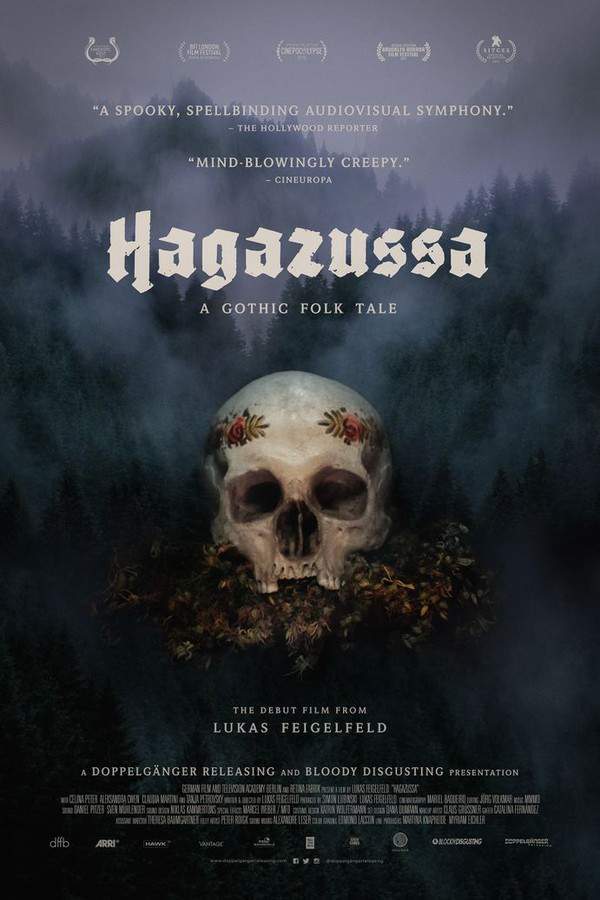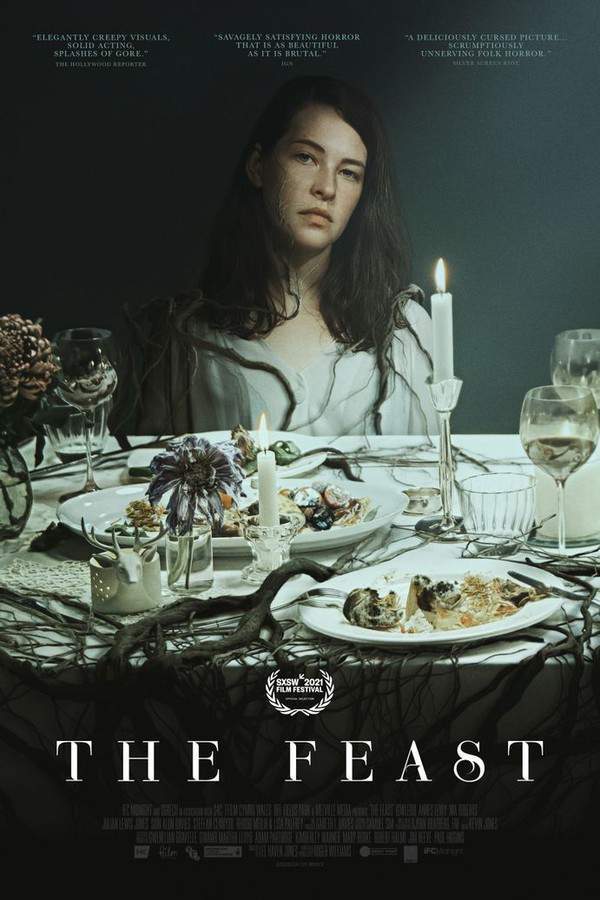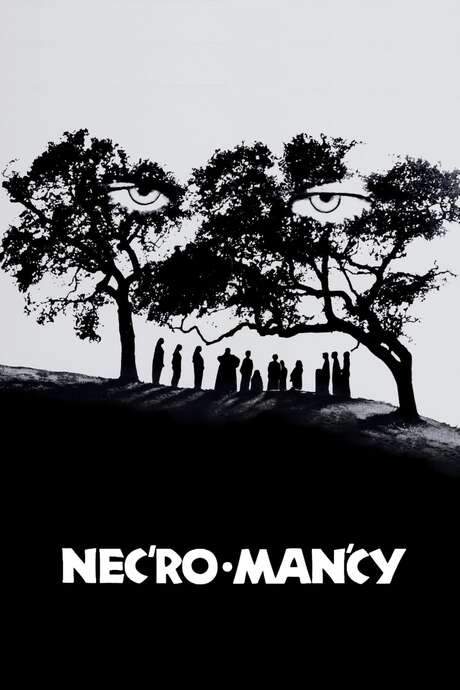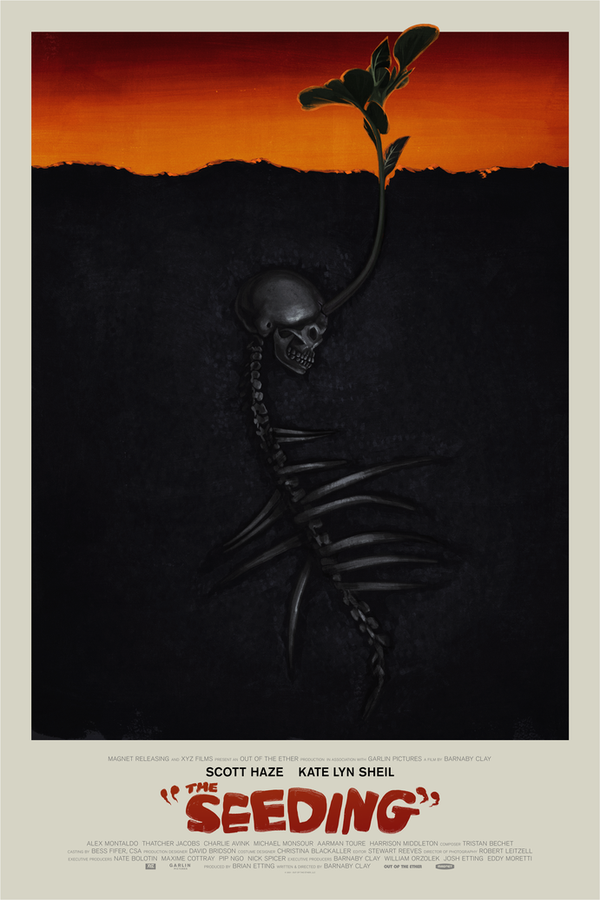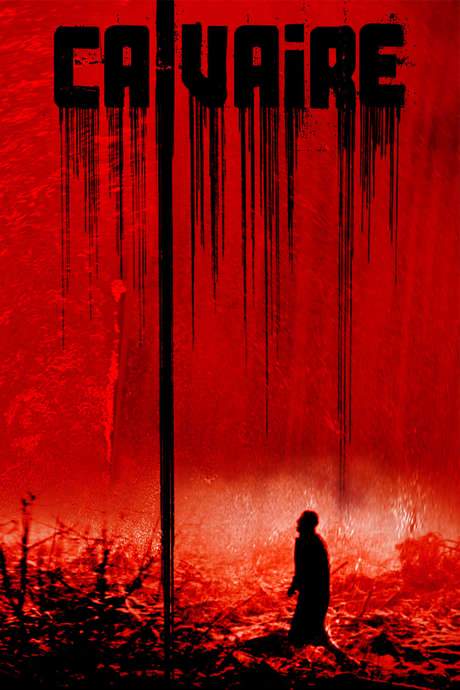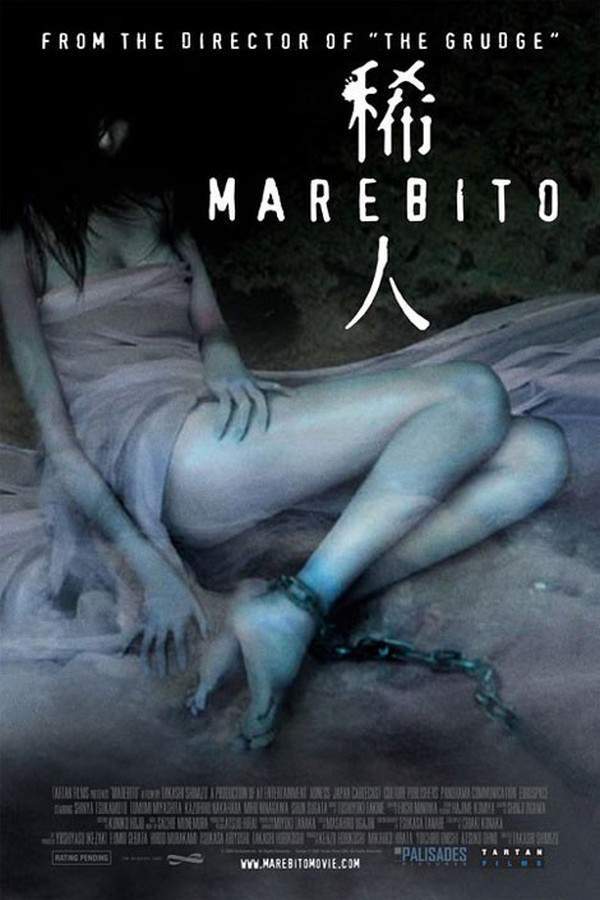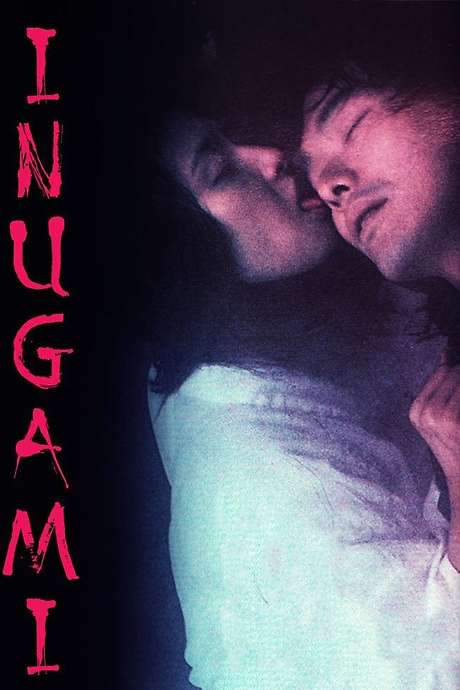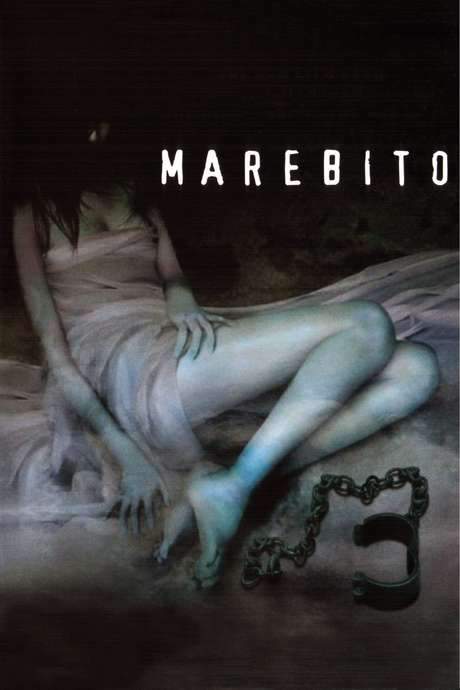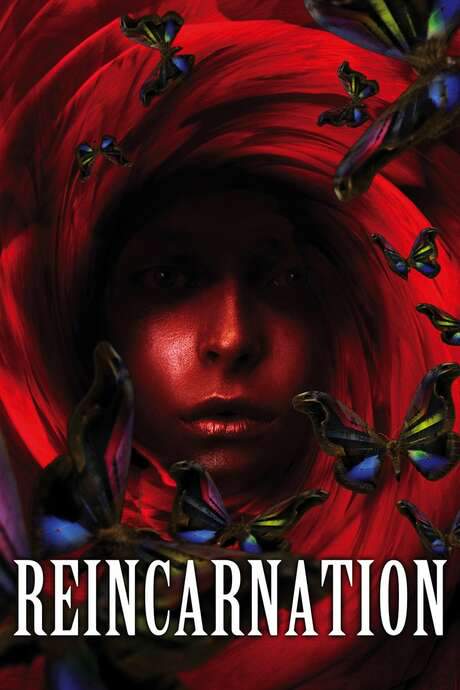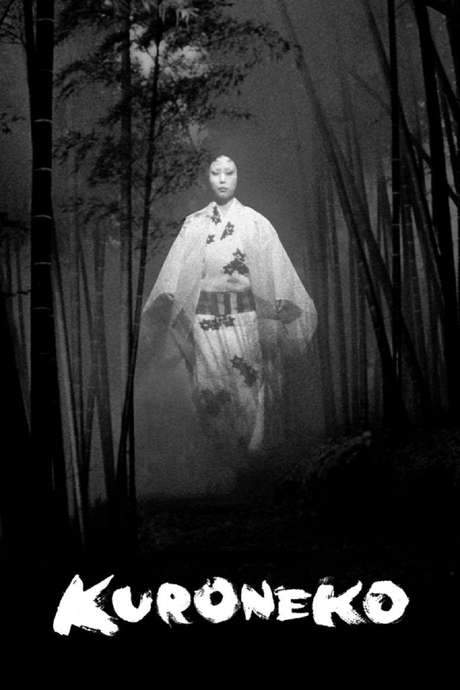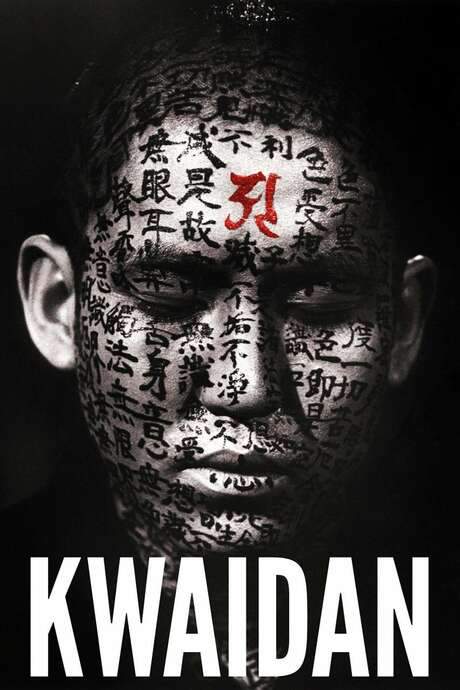
Onibaba
Year: 1964
Runtime: 105 mins
Language: Japanese
Director: Kaneto Shindô
While her son Kichi fights abroad, a mother and her daughter‑in‑law survive in a swamp by ambushing stray samurai and selling the loot. The news of Kichi’s death devastates them, and the daughter‑in‑law begins an affair with the surviving neighbor Hachi. The mother, jealous and angry, tries to frighten her with a mask from a dead samurai.
Warning: spoilers below!
Haven’t seen Onibaba yet? This summary contains major spoilers. Bookmark the page, watch the movie, and come back for the full breakdown. If you're ready, scroll on and relive the story!
Onibaba (1964) – Full Plot Summary & Ending Explained
Read the complete plot breakdown of Onibaba (1964), including all key story events, major twists, and the ending explained in detail. Discover what really happened—and what it all means.
In a rugged landscape near Kyoto, Japan, during the mid‑14th century and at the dawn of the Nanboku-chō period, the film threads a stark, somber tale rooted in war, hunger, and fragile human ties. It opens with two fleeing soldiers being ambushed in a vast field of tall reeds, where an older woman and her young daughter‑in‑law murder them and toss their bodies into a deep, hidden pit. The next day, the two women haul the fallen armor and weapons to a local merchant named Ushi, trading their loot for food. The encounter with Ushi unfurls a microcosm of the era’s desperation—news of ongoing conflict, disrupted livelihoods, and a society that keeps marching forward, even as individuals falter under its pressures.
Ushi’s stall becomes a crossroads where danger and desire collide. After the trade, the older woman voices a sharp warning as she rebuffs a sexual proposition from the merchant, underscoring the precarious balance between survival and moral compromise. A neighbor named Hachi, who has been off at war, returns to the area, stirring old loyalties and new temptations. The two women question him about Kishi, who had been their son and younger woman’s husband, and who was drafted along with Hachi. Hachi reveals that they deserted the war, and that Kishi was later killed after they were caught stealing food from farmers. The older woman’s protective instincts flare as she warns the younger woman to keep her distance from Hachi, blaming him for her son’s death.
Despite the warning, a gossamer thread of attraction begins to pull the younger woman toward Hachi. She secretly answers that pull, slipping away every night to the hut where he resides, where their clandestine meetings become physical. The older woman watches with a blend of anger and jealousy as the affair takes shape. Her attempts to intervene are thwarted when she herself tries to seduce Hachi, only to be curtly rejected. Desperate to preserve her household’s quiet, she pleads with him not to lure her daughter‑in‑law away, insisting that she cannot continue to survive by killing and robbing passing soldiers without her help.
Then a nightmarish event intrudes on the fragile peace: a lost samurai, wearing a fearsome Hannya mask, forces the older woman to guide him out of the field. He explains that the mask protects his painfully handsome face from harm. In a cruel twist, she deceives him into stepping into the pit where their victims disappear, ensuring his death. Down in the pit, she claims the samurai’s possessions and, with great effort, wrests the mask from him, exposing a face so grievously scarred that it seems a punishment in itself.
Once more the night unsettles the village. The younger woman tries to reach Hachi, but the older woman blocks her path, dressed in the samurai’s robes and the Hannya mask, a terrifying symbol that seems to confirm the demonish rumor she’s been stoking. By day, she reinforces the tale, convincing the younger woman that the “demon” is a punishment for her affair with Hachi. The younger woman guards her secrets during daylight, but she continues to seek him by night. During a thunderstorm the older woman terrifies the younger woman again with the mask, yet Hachi, weary of being ignored, finds the younger woman and makes love to her in the grass while the mother‑in‑law watches in silence.
As the affair deepens, the older woman confronts a dawning realization: her daughter‑in‑law’s desire for Hachi cannot be extinguished. Returning to his hut, Hachi is suddenly stabbed by another deserter who steals his food, and the dream of reconciliation sinks into a harsher reality. The older woman learns that rain has made the mask impossible to remove; she confesses her scheme to her daughter‑in‑law and pleads for help in taking off the mask. The younger woman agrees to attempt removal, provided the older woman stops meddling in their relationship. Yet the attempt ends in tragedy: the mask cannot be pulled off, and the younger woman shatters it with a mallet, revealing the disfigured face of the older woman beneath.
What follows is left largely to interpretation, as the film hints at supernatural punishment but never fully explains its origin. The mask’s curse seems to bind itself to the wearer through the power of rain, a Buddhist-inflected symbol of consequence and justice. The younger woman, convinced that her mother‑in‑law has transformed into a demon, flees in terror. The older woman chases after, crying that she remains human and remembers her humanity. In a final, bleak reversal, the young woman leaps over the pit, and as the older woman lunges after her, the film closes on their fates intertwined in a field that has long concealed the secrets of war, guilt, and punishment.
-
Hachi emerges as a crucial figure whose presence rekindles desire amidst war’s wreckage, presenting a fragile anchor for the younger woman while intensifying the older woman’s possessive fear.
-
Young Woman is drawn into a dangerous romance that tests loyalties and exposes the fragility of human trust when survival trumps propriety.
-
Older Woman drives much of the action through jealousy, cunning, and an insistence on control, only to have the truth of her own life reflected back as a cruel mask.
-
Ushi acts as a catalyst in the film’s early scenes, embodying the era’s harsh economics and the rough sexual dynamics that occur at the margins of grace and greed.
-
The Samurai appears as a terrifying, almost spectral figure whose encounter with the women anchors the film’s central motif: the mask as both protection and punishment, a symbol that threads through the narrative’s violence and ambiguity.
Last Updated: October 09, 2025 at 11:27
Explore Movie Threads
Discover curated groups of movies connected by mood, themes, and story style. Browse collections built around emotion, atmosphere, and narrative focus to easily find films that match what you feel like watching right now.
Folk Horror Descent Movies like Onibaba
Primordial landscapes and ancient superstitions corrode human morality.If you liked the folk horror elements of Onibaba, this thread features movies where ancient superstitions and harsh natural environments lead to moral decay and psychological collapse, exploring similar themes of punishment and dread rooted in folklore.
Narrative Summary
These stories typically begin with a fragile human order established in a wild or isolated setting. An intrusion—be it a person, a discovery, or a supernatural event—acts as a catalyst, unraveling the community or individual through fear, jealousy, or adherence to cruel traditions. The journey is a downward spiral into madness or violence, often framed as a dark fairy tale or cautionary legend.
Why These Movies?
They are grouped by their shared foundation in folklore and myth, using a timeless, often rural atmosphere to explore deep-seated human fears. The terror is environmental and psychological, creating a sense of inevitability and a connection to something ancient and punishing.
Claustrophobic Psychological Thrillers like Onibaba
Tensions rise in confined spaces, leading to moral and psychological collapse.For viewers who appreciated the suffocating tension of Onibaba, this list collects movies with a similarly claustrophobic feel, where characters are trapped by their circumstances and relationships, leading to intense psychological drama and bleak outcomes.
Narrative Summary
The narrative structure is often simple but intensely focused. Characters are bound together by a shared, desperate situation, such as survival or isolation. Their flaws and desires clash in a pressure-cooker environment, with the plot driven by escalating psychological manipulation, paranoia, and the breakdown of social norms, rather than external action.
Why These Movies?
They share a core experience of sustained, oppressive tension. The similarity comes from the feeling of being trapped—both in the setting and in the doomed relationships—and the focus on how human weakness leads to self-destruction under pressure, creating a heavy, anxious viewing experience.
Unlock the Full Story of Onibaba
Don't stop at just watching — explore Onibaba in full detail. From the complete plot summary and scene-by-scene timeline to character breakdowns, thematic analysis, and a deep dive into the ending — every page helps you truly understand what Onibaba is all about. Plus, discover what's next after the movie.
Onibaba Timeline
Track the full timeline of Onibaba with every major event arranged chronologically. Perfect for decoding non-linear storytelling, flashbacks, or parallel narratives with a clear scene-by-scene breakdown.

Characters, Settings & Themes in Onibaba
Discover the characters, locations, and core themes that shape Onibaba. Get insights into symbolic elements, setting significance, and deeper narrative meaning — ideal for thematic analysis and movie breakdowns.

Onibaba Spoiler-Free Summary
Get a quick, spoiler-free overview of Onibaba that covers the main plot points and key details without revealing any major twists or spoilers. Perfect for those who want to know what to expect before diving in.

More About Onibaba
Visit What's After the Movie to explore more about Onibaba: box office results, cast and crew info, production details, post-credit scenes, and external links — all in one place for movie fans and researchers.

Similar Movies to Onibaba
Discover movies like Onibaba that share similar genres, themes, and storytelling elements. Whether you’re drawn to the atmosphere, character arcs, or plot structure, these curated recommendations will help you explore more films you’ll love.
Explore More About Movie Onibaba
Onibaba (1964) Scene-by-Scene Movie Timeline
Onibaba (1964) Movie Characters, Themes & Settings
Onibaba (1964) Spoiler-Free Summary & Key Flow
Movies Like Onibaba – Similar Titles You’ll Enjoy
Ichi the Killer (2003) Film Overview & Timeline
Kuroneko (1968) (2010) Spoiler-Packed Plot Recap
Marebito (The Stranger from Afar) (2005) Spoiler-Packed Plot Recap
Inugami (2001) Plot Summary & Ending Explained
Marebito (2004) Ending Explained & Film Insights
Reincarnation (2005) Detailed Story Recap
Carved: The Slit-Mouthed Woman (2007) Spoiler-Packed Plot Recap
Murder of the Inugami Clan (2006) Full Movie Breakdown
Uma to onna to inu (1990) Spoiler-Packed Plot Recap
Onimasa: A Japanese Godfather (1982) Story Summary & Characters
Kuroneko (1968) Ending Explained & Film Insights
Snake Woman’s Curse (1968) Story Summary & Characters
Kwaidan (1964) Detailed Story Recap
Jigoku (1960) Movie Recap & Themes
Horror of the Wolf (1973) Movie Recap & Themes

